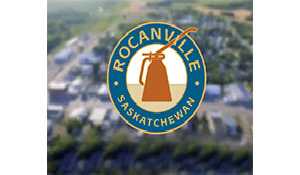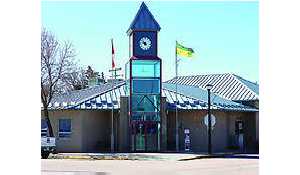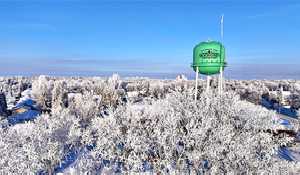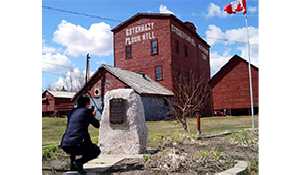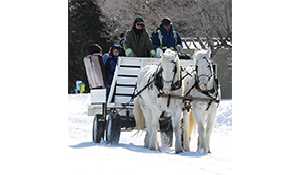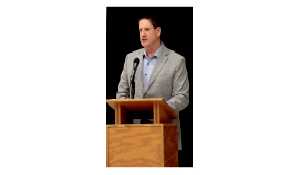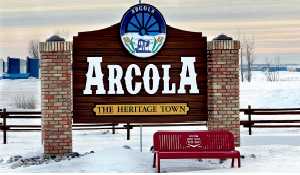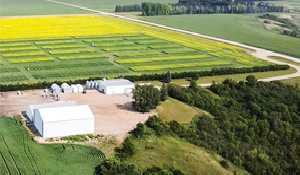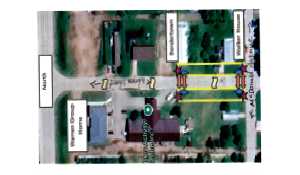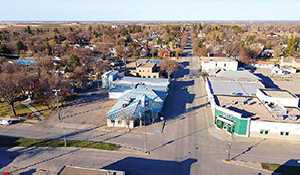At $50 per tonne, carbon tax will be 98 per cent on natural gas
May 13, 2019, 10:10 am

The latest SaskEnergy bill for my business arrived last week, and I thought I would take a closer look at it since the carbon tax is applied to SaskEnergy as of April 1.
The total bill was $227.39, not too bad for heating and providing hot water to a 10,000 square foot building in a chilly April, but $29.83 or 13 per cent higher than it would have been without the carbon tax—when you combine the $28.41 federal carbon tax and the $1.42 GST on that tax.
One surprising thing is that when you look at the bill, the cost of the actual natural gas consumed is about a third of the total. The rest is delivery charges, surcharges and taxes.


This bill is a little more complicated than the average SaskEnergy bill because the cost of gas went down from 11.36 cents per cubic metre to 9.98 cents per cubic metre on April 1. The bill shows $72.52 worth of gas consumed at the new rate and $5.50 worth of gas at the old rate, for a total of $78.02 of the $227.39 or 34 per cent of the total bill.
The carbon tax is not based on the price of the natural gas, but on the consumption. The carbon tax now is 3.91 cents per cubic metre or 39 per cent of the cost of the gas. (To simplify, the cost of the natural gas is about 10 cents a cubic metre, the tax is about four cents a cubic metre, so about 40 per cent.)
Now, here’s the scary part. The carbon tax is currently $20 per tonne. This will rise each year to $50 per tonne by 2022.
$50 is 2.5 times $20. 2.5 times 3.91 is 9.78, so as the carbon tax rises to $50, the tax on natural gas will rise from 3.91 cents per cubic metre to 9.78 cents per cubic metre.
If natural gas prices remain the same (they have been dropping for years) that would mean a tax of 9.78 cents on a commodity worth 9.98 cents.
That’s a 98 per cent tax.
So, by the time the initial carbon tax is fully implemented, the tax would double the cost of natural gas in Saskatchewan. And remember the Liberal government has suggested that further increases may be necessary beyond that $50 per tonne.
A leaked briefing note to Environment Minister Catherine McKenna suggested that to be effective, the carbon tax will have to be raised to $300 per tonne. A $300 per tonne carbon tax would be 58.65 cents per cubic metre or a 587 per cent tax. That sounds totally insane until you look at the price of things like cigarettes and alcohol, which are more tax than anything else in Canada, as the government uses taxes on these products to try to reduce consumption, just like it is now applying the carbon tax.
I have a small business and a relatively well insulated building, so the impact of the $20/tonne carbon tax is not huge, but I cannot imagine the impact of this tax on companies that are using natural gas for drying grain, processing foods, heating slurry like so many mining companies, melting steel like Evraz—what a disaster! I also feel for pensioners that may be in a house that is expensive to heat—the carbon tax will become a huge burden on them.
This unfair tax is only being applied in provinces where the federal government has decided it doesn’t approve of the province’s plan for tackling emissions.
While you pay a carbon tax on keeping your home warm in Saskatchewan, there is no carbon tax in Quebec, for instance. Instead, the province has a “cap and trade” system under which companies need to purchase carbon credits only if they increase their own carbon emissions from self-reported levels before the cap and trade system came into place, and there is no carbon tax for individuals heating their homes or filling up with gas.
If nothing changes, this unfair tax is going to be a huge burden on Saskatchewan and Manitoba residents. Tweet


